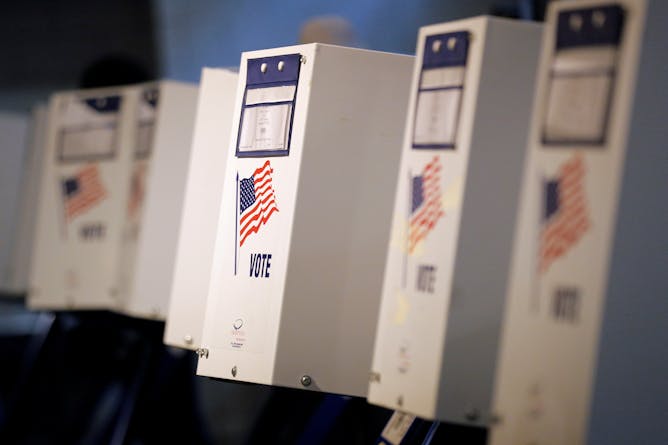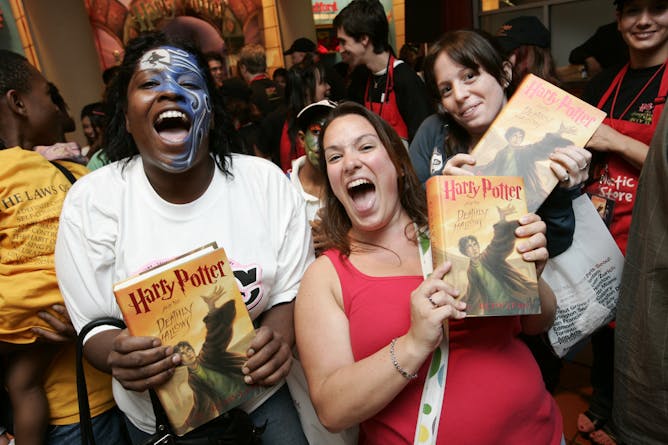Editor's note
|
|
In November, voters in Florida will decide on a measure that would restore voting rights to felons upon serving their sentence. Florida stands out among states with laws that restrict voting based on criminal convictions, with 10 percent of adults in Florida unable to vote because of felony convictions. Criminologist Kimberly Kras, who has interviewed ex-felons, writes that being unable to vote can discourage their efforts to reintegrate into society as engaged citizens, while also leaving large swaths of poor people and people of color without political representation.
The Episcopal Church has decided to revise its prayer book so as to refer to God in gender-neutral terms in place of the male pronoun. In early Christian writings and texts, many feminine terms describe God, argues scholar of Christian origins and gender theory David Wheeler-Reed. God gives birth, is a woman in labor and a mother comforting her children, he writes.
When psychology professor Georgene Troseth read the first Harry Potter book back in the late 1990s, she thought the text was rich with metaphors for key concepts in child development. Today, the Vanderbilt professor uses the wildly popular book about the orphaned boy who discovers he’s a wizard to get first-year college students to appreciate their own resilience.
|
Danielle Douez
Associate Editor, Politics + Society
|

|
|
Top stories
|

Voting booths.
REUTERS/Brendan McDermid
Kimberly R. Kras, University of Massachusetts Lowell
More than 6 million US citizens can't vote because they've been convicted of a felony. But states are beginning to change their laws. Will it make a difference?
|

All Saints Episcopal Church, Fort Lauderdale, Florida.
Carolyn Fitzpatrick
David Wheeler-Reed, Albertus Magnus College
In early Christian texts, God gives birth to Israel and is described as a woman in labor and a mother comforting her children.
|

Harry Potter books have captured the imaginations of entire generations.
Clark Jones/Courtesy of Scholastic, Inc./AP
Georgene Troseth, Vanderbilt University
A developmental psychologist explains how she uses Harry Potter books to make child development more relatable to first-year college students, many of whom grew up on the wildly popular books.
|
|
|
|
|
|
|
Politics + Society
|
-
Daniel Thomas Potts, New York University
There was a time when Iran and America were friends. Americans founded schools there, helped Iran handle financial crises and trained the country's first generation of doctors. Could that happen again?
-
Mark Kende, Drake University
The court carefully considered what the word 'emoluments' meant at the time the Constitution was drafted.
|
|
|
|
|
|
Trending on site
|
-
Gabriel Neal, Texas A&M University
Ouch! Who hasn't felt the effects of a paper cut and then cursed the gods or themselves for the injury? But have you ever wondered why they hurt so much? A professor of family medicine explains why.
-
Jesse Grady, Mississippi State University
Based on his age in 'dog years,' could your animal pal legally buy alcohol? Or would he be cashing in on his senior discount? Veterinarians are more interested in life stage than a particular number.
-
Brandon Peters-Mathews, Stanford University
Are you sleep deprived? Don't worry. That might make the situation worse. Instead, make some simple adjustments, such as staying off digital devices an hour before bedtime.
|
|
|
|
| |
| |
|
|